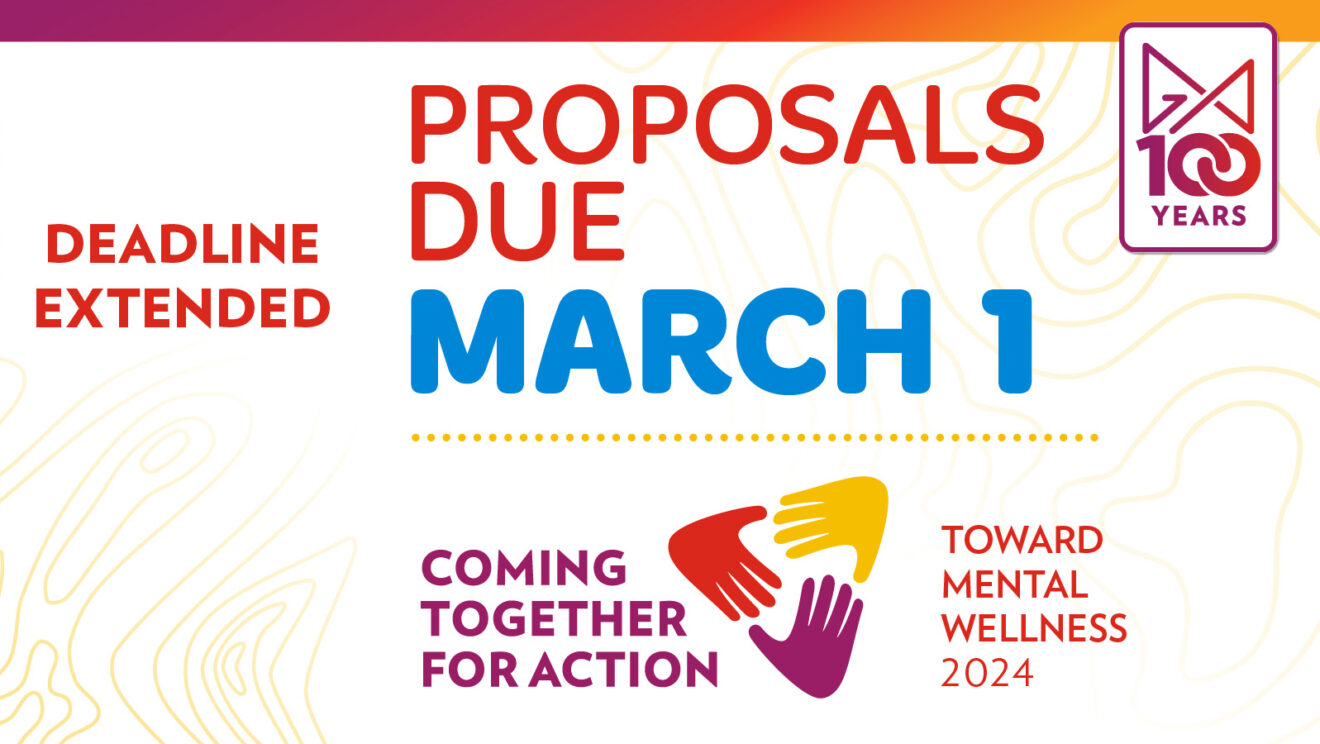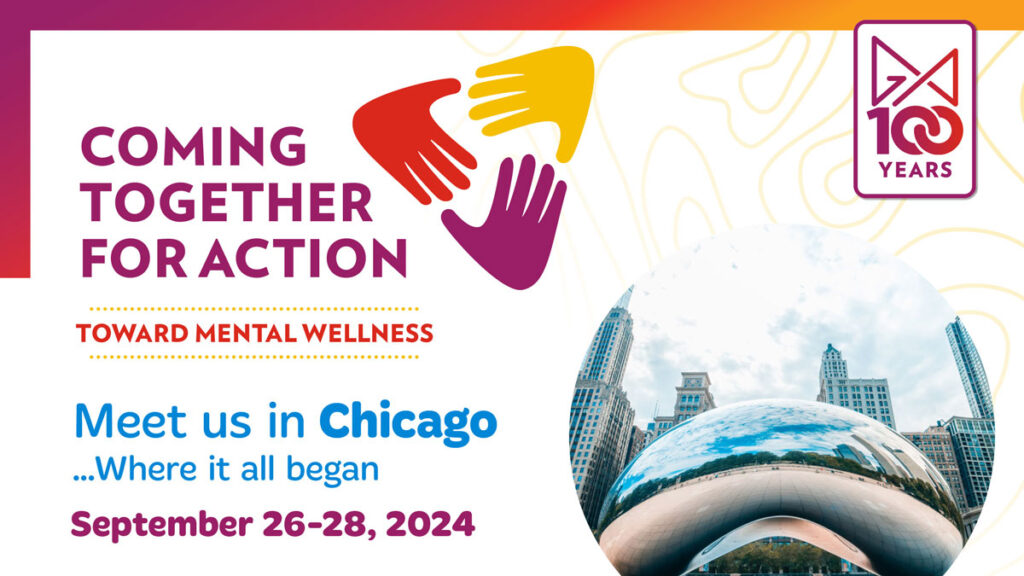CT4A: 2024 Call for Proposals

The CT4A 2024 proposal submission period has closed.
The Global Alliance for Behavioral Health and Social Justice (Global Alliance) collaborates with individuals with lived expertise, researchers, and practitioners from across disciplines to promote mental wellness for all in settings where we live, learn, work, pray and play. Now more than ever we need to work together to counter threats to mental wellness, such as health disparities, global conflicts, climate change, increased displacement, and erosion of human rights. We need to reimagine ways to create settings, social environments and policies that promote wellness.
This is the moment to demand change—with our voices and with our actions.
U.S. Surgeon General Vivek H. Murthy, 2021
Underscoring the need to act, the Global Alliance invites submissions for the 2024 Coming Together for Action (CT4A) Symposium that illustrate innovative and effective efforts. Preference will be given to proposals that have engaged community partners and/or people with lived experience throughout all phases of their work and demonstrate a commitment to diversity and inclusion. Presentations may address research, policy, and practice. We will broadly focus on three main areas: equity, behavioral health across the lifespan, and children and families.
CT4A welcomes submissions that examine systems, settings and policies that focus on response to the current crisis and, the prevention of future crises.
Questions of Interest
Including, but not limited to:
- How do we promote behavioral health and social justice within, across, and for individual populations? Does this change for populations that are underserved such as LGBTQ+? Migrants and displaced persons? Indigenous? Justice-involved? Veterans? Men?
- How do trust and democracy influence mental health? How can focusing on these societal foundations affect mental health for all?
- What are the key components of a just and socially connected community?
- How can communities create opportunities for healing? For restoration?
- How can we better integrate research into policy?
- How do community solutions promote national and global solutions?
- What is “equity” in behavioral health for populations that historically have been oppressed or discriminated against?
- How do non-traditional disciplines collaborate to integrate strategies that promote wellness (i.e. urban planning, architecture, economics)?
- What are the key components of comprehensive behavioral health for adults? For children and youth? Young adults (ages 18-35 years)? For older adults (ages 65+)?
- What are the implications for changes in the workforce to implement comprehensive behavioral health?
- How do we ensure meaningful child and youth engagement in research, policy and practice?
- How can social media and technology be a positive influence for people’s well-being?
- What policy changes at the community, state and national levels are needed to improve mental wellness for all?
Proposal Submission Components
- Presentation form
- Presentation title: 15 words maximum
- Short abstract: These 75-word abstracts will be included in the symposium program app. They are required for all submissions except poster presentation proposals.
- Long abstract: These abstracts will inform the review and proposal evaluation process. Format-specific guidelines are noted for each session / presentation type.
- Presenters / Authors, as well as their affiliations and contact information
- Learning objectives: A minimum of two learning objectives must be submitted with each abstract.
- Topic areas: Submissions will indicate the primary topic area (e.g., Equity, Behavioral Health, Children & Families) from this call for abstracts.
- Policy / practice relevance: All submissions must include a brief statement of the work’s potential implications for policy and/or practice (maximum of 65 words).
- Qualification statement: MUST be specific to the abstract and describe presenter’s qualification and areas of expertise as it relates to the topic.
- Additional requests, e.g., length of session, accessibility, any special accommodations
Presentation Formats
Abstracts should include adequate discussion of background/rationale, method/approach, results/findings/discussion objectives, and conclusions/implications so that reviewers can evaluate the submission’s potential contribution to the symposium.
- Poster presentation: Posters can provide valuable opportunities for one-on-one or small group discussion of a work. Submissions will be considered across all topic areas, and poster sessions will be organized to cluster work with similar themes, populations of focus, or emphases. Poster abstracts are limited to a maximum of 250 words.
- Individual paper: Submissions will be considered across all topic areas. Accepted submissions of these traditional presentations will be grouped thematically with one or more other related works in a 50-minute session. Depending upon space and scheduling availability, some individual paper submissions may be accepted as posters. Paper abstracts are limited to a maximum of 250 words. Individual paper presentations are approximately 15 minutes in length.
- Table: These 50-minute sessions are intended to foster discussion among presenters and symposium participants. These sessions are typically less formal than panel discussions and often lend themselves to more audience participation. One or more facilitators may lead a session, which may include a brief presentation of foundational content prior to the interaction- or discussion-focused activity. These sessions provide a forum for sharing ideas and learning about diverse perspectives. They typically focus on critical issues in the field, innovative projects or initiatives, lessons learned, and needed future directions. Proposals must also include specific information about the planned strategies for facilitation and the proposed approach for engagement of audience members. Proposals are limited to a maximum of 250 words.
- Ignite Ideas Sessions are a collection of short presentations (10 minutes) on innovative ideas in policy, practice or research. These sessions will be grouped by the Global Alliance in a roundtable setting. They are intended to be discussed dynamically. These sessions are intended to engage participants in critical interdisciplinary discussions that explore efforts particularly in relation to burgeoning ideas. Ignite Ideas have the same proposal submission requirements as other symposium formats.
Selection Criteria
Including, but not limited to:
- Alignment of the submission with symposium theme and emphases
- Clarity of purpose and goal(s) for the proposed presentation
- Relevance / significance of the topic for practice, education/ preservice training, research, or policy
- Implications for human rights/ actionable recommendations for behavioral health practice or policy
- Appropriate methodology / rigor (as relevant)
- Potential contribution to knowledge / applied work
- Evidence of interdisciplinary and multi sector collaboration
- Evidence of culturally, linguistically and contextually sensitive efforts
- Overall quality of submission; effective communication regarding planned presentation
About CT4A 2024
Join us on September 26–28, 2024 in Chicago, IL, USA!
Coming Together For Action (CT4A) is an in-person symposium with limited capacity. Registration will open in spring 2024. Continuing education and networking opportunities will be available. Learn more at together4action.org
Stay current by subscribing to our emails and following the Global Alliance on LinkedIn.

